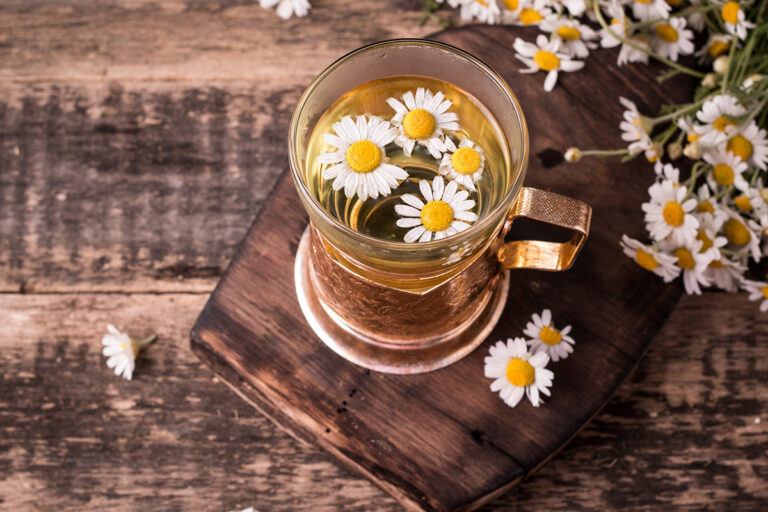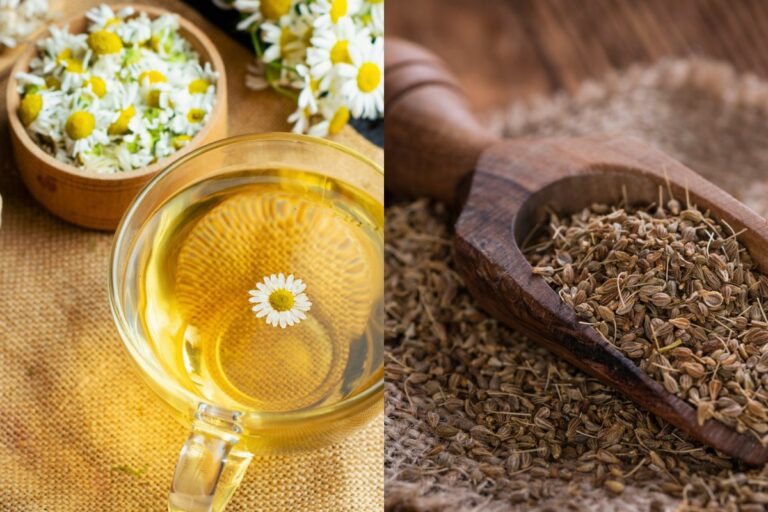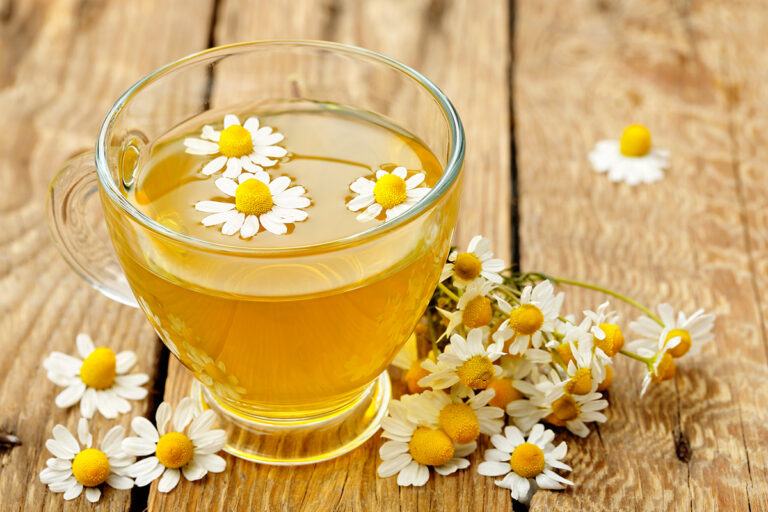Does Chamomile Tea Make You Sleepy?
Chamomile tea is often considered a soothing, comforting brew, one that’s perfect for winding down at the end of the day. But does chamomile tea actually make you sleepy?
In short, yes, chamomile tea can potentially make you sleepy due to an antioxidant called apigenin that promotes sleepiness. However, its effectiveness can vary between individuals, and more comprehensive research is required to fully establish these effects.

Why Does Chamomile Tea Make You Sleepy?
Chamomile, a herb praised for its calming effects, possesses certain unique properties that could potentially improve the quality of your sleep. Central to these properties is a substance known as apigenin. This antioxidant, found in ample amounts in chamomile, has the ability to bind to specific receptors in your brain. By interacting with these receptors, it may encourage sleepiness and decrease insomnia, a chronic sleep disorder characterized by the inability to sleep.
Chamomile Tea and Sleep Quality
A number of scientific studies have probed into the relationship between chamomile tea and sleep, showing promising results.
One particular study involved postpartum women who consumed chamomile tea for a duration of two weeks. The women reported better sleep quality compared to another group that didn’t drink chamomile tea (1). Furthermore, these women exhibited fewer symptoms of depression, a condition often correlated with sleep issues.
In another research undertaking, individuals consumed 270 mg of chamomile extract twice a day for 28 days. The results were encouraging – the participants experienced a third less nighttime awakening and managed to fall asleep 15 minutes quicker than those who didn’t consume the extract (2).
Limitations and Future Research
Despite these promising findings, it’s crucial to acknowledge that more research is needed to fully comprehend the extent of chamomile tea’s impact on sleep. The studies conducted so far have shown promising trends, but there is a necessity for more comprehensive and large-scale studies to confirm these initial findings.
Should You Try Chamomile Tea for Better Sleep?
Based on the current evidence, drinking chamomile tea before bed seems to be a worthy experiment for those who struggle with falling or staying asleep. It’s a natural, non-addictive way to potentially improve sleep quality. While more research is needed to fully establish the effects of chamomile tea on sleep, there’s little harm in trying this soothing, comforting brew as part of your bedtime routine.
Here are some of the best chamomile teas we have found.
Wrapping Up
So, does chamomile tea make you sleepy? The answer is a tentative “yes”, but it’s important to remember that effects can vary from person to person. Some might find the relaxing properties of chamomile tea beneficial for sleep, while others might not notice any difference. Nonetheless, it’s definitely worth exploring, especially if you’re looking for a natural way to potentially improve your sleep.
Remember, good sleep hygiene involves more than just your choice of beverage. It’s also about maintaining regular sleep schedules, creating a serene sleep environment, and managing stress. Incorporating chamomile tea into your routine could be a small but beneficial part of a larger, more comprehensive approach to healthy sleep.
FAQ
Can You Take Chamomile Tea and Melatonin Together?
Yes, it is generally considered safe to consume chamomile tea and melatonin together. Both are commonly used to promote relaxation and aid sleep. However, as with any supplement, it’s recommended to consult with a healthcare professional first, especially if you’re taking other medications or have underlying health conditions.
Does Chamomile Tea Have L-Theanine?
No, chamomile tea does not contain L-Theanine. L-Theanine is an amino acid typically found in significant amounts in green tea and black tea. Chamomile tea, however, is known for its content of apigenin, a flavonoid that promotes relaxation and sleep.




